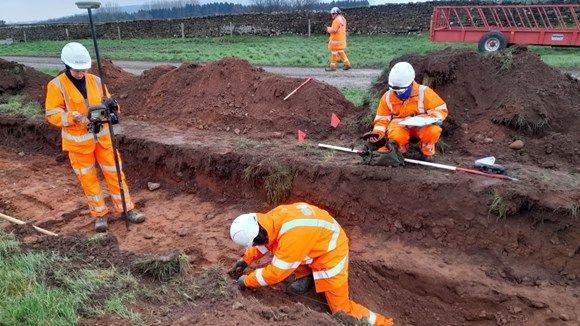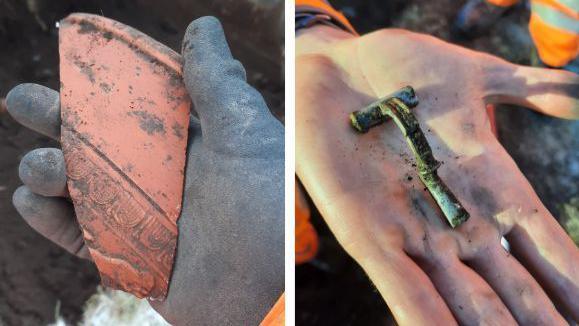Ancient treasures found on A66 dig

Archaeologists have unearthed ancient artefacts along the A66 in Cumbria
- Published
An archaeological dig near one of Cumbria's busiest roads has unearthed artefacts dating back thousands of years.
Stone tools, pottery shards and a copper alloy Roman brooch have been discovered close to the A66, along the route of the proposed Northern Trans-Pennine Project.
Work on the £1.3bn scheme between Penrith and Scotch Corner is due to begin in 2024.
But for the last three months a team from Oxford Cotswold Archaeology, working alongside National Highways, has been allowed access to the site.

Roman pottery and jewellery have been found on the dig
Discoveries include a settlement believed to date to the Late Neolithic or Middle Bronze Age (1600-1200 BC), as well as evidence of life in Cumbria when the A66 was a Roman road.
Stephen Rowland, project manager at Oxford Cotswold Archaeology, said: “The route followed by the modern A66 through the Eden Valley and Stainmore Pass was ancient even when the Romans formalised it with their own road, nearly 2,000 years ago.
"Significant road and river junctions and crossings are still marked by prehistoric monuments, Roman forts, and medieval castles, whilst the fertile valley has supported communities since the end of the last Ice Age."
In another location, a possible ‘grubenhaus’ - a building typically built above a large rectangular pit and associated with Early Medieval settlements - has been found.
The Northern Trans-Pennine Project will see upgrades to single carriageway sections of road and changes to junctions along the route.
Related topics
Related stories
- Published8 November 2023
